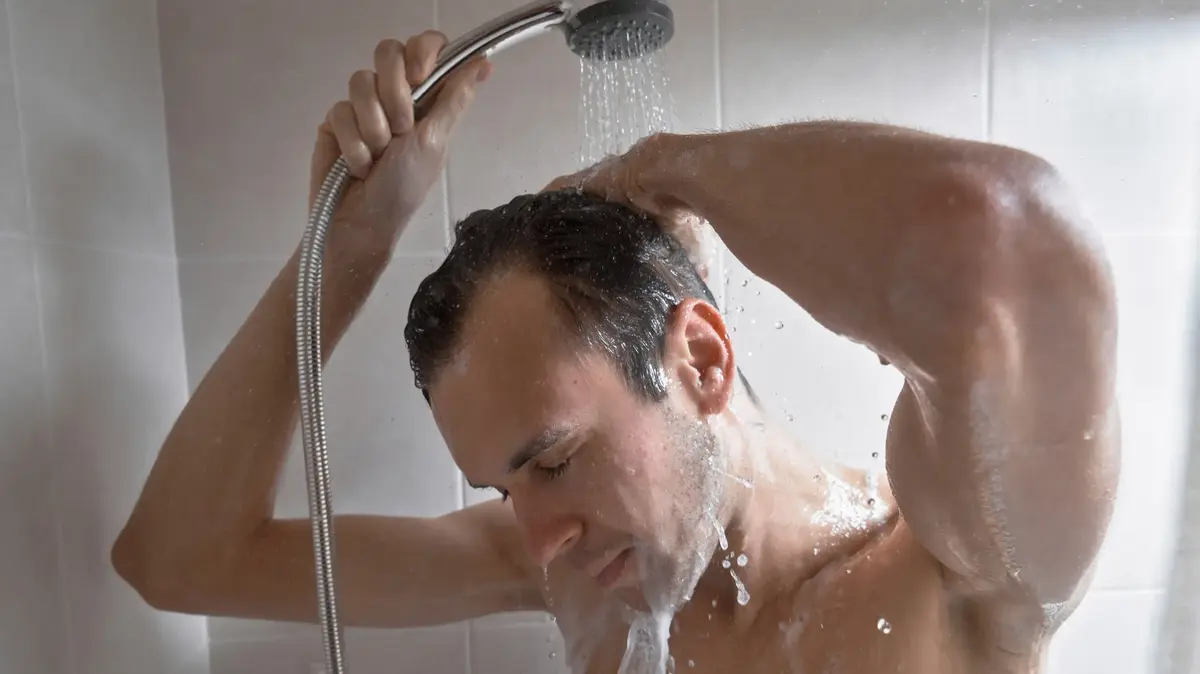This doctor has not used soap for 5 years, and that is what happened to him
An interesting experiment conducted by a doctor from the USA for years caused quite a bit of eyebrow raising, but in the end a book came out full of important health insights. This is how the story ended
Walla!
health
05/04/2022
Tuesday, 05 April 2022, 13:28 Updated: 13:35
Share on Facebook
Share on WhatsApp
Share on Twitter
Share on Email
Share on general
Comments
Comments
How many times a week is it recommended to take a shower to stay healthy?
("Story in a Minute" system)
We're used to hearing about quite a few weird things people do to their body, but when it comes to a doctor it's already getting a lot more intriguing.
Dr. James Hamblin took an extraordinary step and did not soap his body for five whole years, trying to save money and time, but mostly to allow the microbiome of his skin to thrive.
Dr. Hamblin began the project when he first moved into a small apartment in Brooklyn, New York, During his previous medical career.
In his book Clean, he explains that part of it was related to reducing expenses and saving time.
He said he realized that if he bathes for about 30 minutes a day, he is wasting almost two years of his life.
However, the essence of the project is much more biological.
More on Walla!
This is what happens when the trillions of bacteria in your body go out of balance
To the full article
"I made a lot of downsizing moves in my life, and at the same time, I started learning about the microbiome of the skin," Dr. Hamblin said in an interview with Today about two years ago. "It has led to some experiments in trying to see exactly what the purpose of many of our hygiene and grooming habits is, if in fact we are always covered in bacteria all the time, most of which are perfectly healthy, and even beneficial to us."
Covered with good bacteria.
Man taking a shower (Photo: ShutterStock)
By the way, Dr. Hamblin is not the first academic to conduct such an experiment. David Whitlock, a chemical engineer from the United States, has used a spray with live bacteria instead of a shower for the past decade and the man's body has not seen soap and water for over a decade.
He claims that the method not only kept him clean from unnecessary smears, but also helped him heal the acne and eczema on the skin from which he suffered.
More on showers
In the morning or in the evening, short or long?
Myths about a shower that it's time to shatter
What happens to the body when you do not shower for several days?
Love long showers?
Here are 5 weird things they do to the body
Do you deserve a disabled parking ticket?
That's how you'll get it without bureaucracy
There are schools of researchers who think that people shower too often so that they harm their own microbiome, including potentially beneficial bacteria that play a role in skin health.
There is even evidence that conditions like acne can be caused in part by a disruption to the normal microbiome of the skin.
But of course there are downsides to not showering - other than the fact that it can be a bit disgusting and smelly.
Dr. Hamblin is a doctor so he continued to wash his hands, for the sake of hygiene and because of the corona epidemic.
Eczema
stains, "he told the Guardian," I did not smell like pine or lavender trees, but neither did I smell like onions. "
This one for everyone.
In many ways it was terrible, "he said.
health
My health
Tags
Soap
shower
Microbiome
germs

